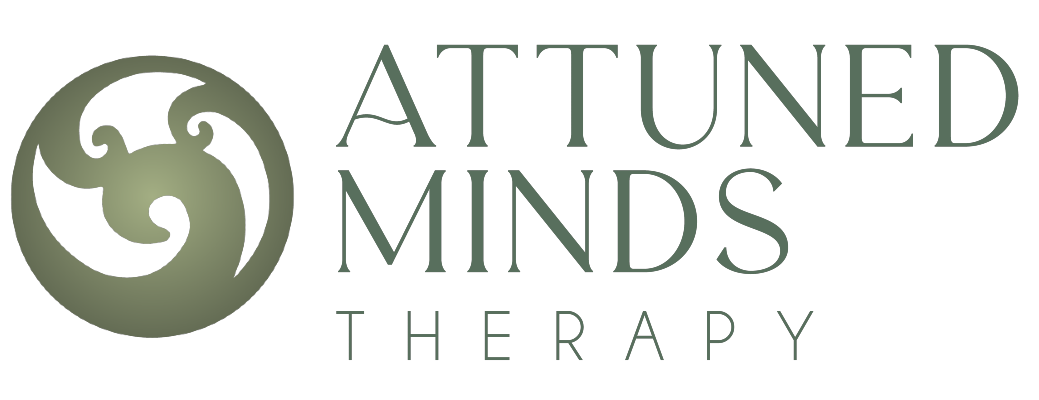Anxiety Therapy
Is Your Life Clouded By Constant Worry?
Do you have anxious thoughts that keep you up at night or distract you during the day? Are you experiencing a fear of social situations? Maybe you find yourself staying away from places you once were able to visit.
Anxiety can affect your mind, body, sleep patterns, relationships, and other behaviors. While anxiety is often induced by major life events or changes, smaller stressors also play a role in day-to-day anxiety.
Maybe you experience fear at the thought of leaving the house, going for a drive, being separated from a loved one, or going about other daily routines. Especially after the past few years of global distress, you may feel compelled to avoid people or everyday life situations—like going to the grocery store, getting gas, or eating at a restaurant—and worry that others may be able to sense that you are anxious.
Excessive Worry Can Even Cause Distressing Physiological Symptoms
Maybe worrying and stress have also taken a toll on your body, causing physical anxiety symptoms that lead to problems throughout your day. Perhaps you’ve experienced panic attacks that involve a pounding heart, sweating, shaking, dizziness, nausea, or abdominal discomfort. Sometimes these sensations may become so distressing that you feel like you can’t breathe or even fear that you may be dying.
You likely have thought before, if you could just stop feeling anxious, your life would be fine. But where do you start? Ignoring or brushing off your anxiety has only made you feel more out of control.
Seeking therapy for your anxiety is the first step in the right direction. At Attuned Minds Therapy, we’re here to support you in taking steps toward your healing journey.
Recognizing When Normal Anxiety Has Become Disordered
Anxiety isn’t always negative. Everyone experiences it from time to time; anxiety is both normal and adaptive. For example, anxiety is what enables us to jump out of the way of a speeding car about to hit us. If we have an important event to attend or a presentation to give, a healthy level of anxiety can motivate us to prepare well and perform to the best of our ability. If we didn’t experience any anxiety, we could become apathetic to the things we value in life.
Experiencing too much anxiety too often can take a toll on our lives and treatment may become necessary. One in four adults will have an anxiety disorder in their lifetime. Females are twice as likely as males to experience Generalized Anxiety Disorder (GAD). The prevalence of GAD tends to peak in middle age and then usually decreases during the later years of life.*
Symptoms Of Anxiety Disorder Tend To Be Chronic
Those diagnosed with an anxiety disorder often describe feeling anxious and nervous all their lives, with symptoms waxing and waning across their lifespan. Most people try to "control" their anxiousness or avoid the people, places, and things which make them anxious. However, both of these strategies have a cyclical effect and end up only prolonging distress and discomfort.
Through counseling, you can learn to recognize the symptoms of anxiety, understand how it affects your thoughts, feelings, and behaviors, and learn how to respond to feelings of anxiousness more effectively. This results in symptoms being much more manageable and restores your freedom to live life to the fullest without being ruled by anxiety.
Anxiety Therapy Can Help You Stop Avoiding And Start Living
At Attuned Minds Therapy, we offer you a safe space to identify your relationship with anxiety and explore possibilities for change. Anxiety is nothing to feel shameful about, and counseling can help you figure out what you can start doing differently so that you can look at life’s challenges from a new perspective and live a mindful life.
Our Sessions Will Be Client-Centered
The therapy journey commonly begins with psychoeducation about anxiety disorders. We will have a conversation about what specific goals you have related to anxiety. Then, we will likely explore what is provoking an anxiety response pattern and identify what skills you need to develop to respond more effectively when such symptoms are provoked.
We take a collaborative approach to anxiety treatment that is client-centered, focusing specifically on your needs and on how and why you are struggling. This individualized focus will determine how our sessions will look over time, as well as our specific goals for treatment. Working together with your counselor will help you face your fear and allow you to live unencumbered by overwhelming anxiety.
We honor clients as being the experts of their own lives, and thus we aim to help you find personal solutions to individual problems by connecting to your values. We will look at how you can live a life based on those principles and judge yourself less. Our conversations will focus on what is and isn’t working for you, and what you may be able to start doing differently in your everyday life.
Treatment Methods To Help You Heal, Transform, and Thrive
Research findings indicate that the therapist-client relationship plays an important role in successful treatment outcomes for anxiety and other mood disorder symptomatology. Your counselor should be someone with whom you feel comfortable, someone you connect with, and someone who challenges you to meet your therapeutic goals.
Some of the common therapeutic methods we will utilize during our sessions:
Mindfulness-based practices aimed at supporting health and wholeness. We will focus on helping you learn how to be present, in the moment, and accepting of your thoughts and feelings. Additionally, we will explore skills to reduce stress and reactivity to everyday life.
Relational therapy helps you make shifts in your relationship patterns—the relationship you have with yourself, with others, and with your problems.
Hypnotherapy, specifically Ericksonian-informed hypnosis, is an empirically supported clinical therapeutic approach that accesses the unconscious mind through the use of metaphors, story-telling, and other respectful hypnotic techniques to address your mental health goals.
Acceptance and Commitment Therapy (ACT), facilitates learning to accept the ups and downs of life, including your thoughts, feelings, and reactions and supports committing to making behavior changes based on personal values so that you can live the best life possible regardless of circumstance.
With our support, the skills that you will learn and practice during treatment can become valuable and effective tools that you can utilize throughout the remainder of your life to address anxiety and other stress-related symptoms.
You Might Still Have Questions About Anxiety Therapy…
How can anxiety therapy help me? I feel like I am beyond help.
Therapy can help you identify the specific problems you are facing and develop a treatment plan to address them, no matter how overwhelming things may feel. The therapeutic process can help provide fresh perspectives, introduce new ways of thinking, and help you find solutions to your challenges by utilizing your strengths and resources.
I'm embarrassed about some of my anxious behaviors and afraid to talk about them.
Being honest can be scary, so when you begin therapy, take your time and trust your instincts. Therapy is a judgment-free space where you can share whatever behaviors or past experiences are causing you distress. Furthermore, as a private-pay practice, Attuned Minds Therapy is not required to share any identifying information or details of your treatment with third parties, like insurance companies or an employer, which helps protect your confidentiality.
I am nervous about one-on-one in-person therapy. Do I have any choices to make me feel more comfortable?
We strive for our clients to feel supported and safe in their therapy sessions. What that looks like might be different for everyone.
If you feel uncomfortable attending sessions in person at our office, you may choose to begin via telehealth from your own home. (We currently offer Telehealth sessions via a secure, HIPAA-compliant platform to Illinois and Florida residents.) You could also choose to bring a trusted family member or friend with you to a session if that assists you in your therapeutic journey.
Let’s Tackle Your Anxieties Together
Deciding to seek counseling for anxiety is an act of bravery and an important first step on your way to healing. Please reach out to Attuned Minds Therapy for a free, 15-minute phone consultation at 407-502-2635 if you are ready to take action to improve your relationship with anxiety.
* Diagnostic and statistical manual of mental disorders (5th ed). (2013). American Psychiatric Association.





